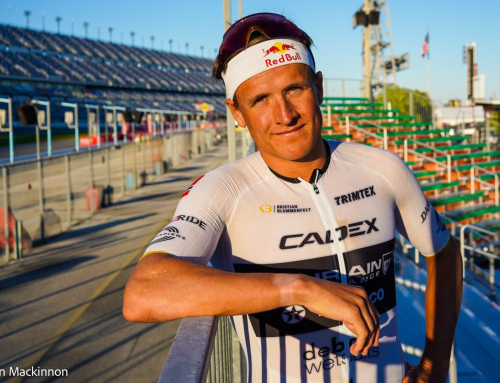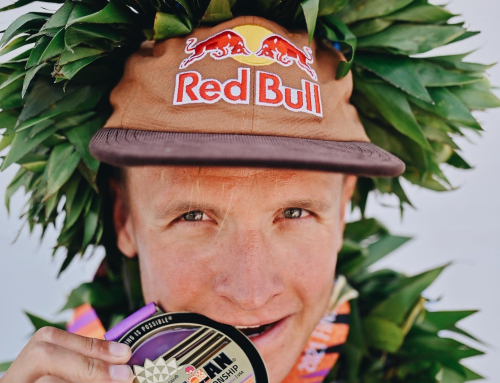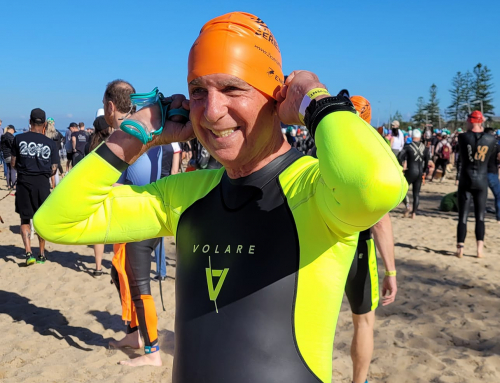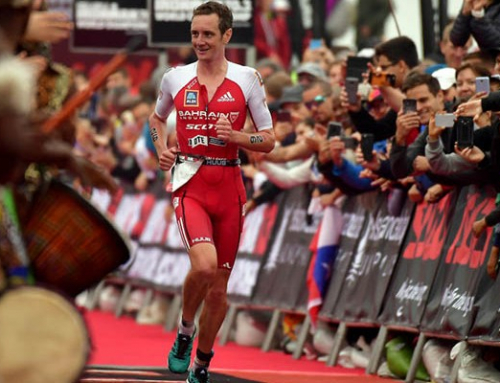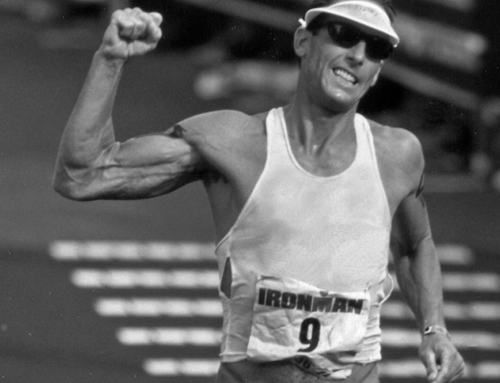Being mentally tough is important for all athletes – however in my experience, a lot of people who try to develop it go about developing it in ways that are well intended, yet lead to promoting performance inconsistency. Behaviours that lead to choking.
Mental toughness expert Dr Daniel Gucciardi of Curtin University in Western Australia, suggests that “‘Mental toughness’ is a personal capacity to produce consistently high levels of subjective (e.g. personal goals or strivings) or objective performance (e.g. win a race) despite everyday challenges and stressors as well as personal adversity.”
Normal human experiences and mental toughness mythology
Firstly, competition isn’t stress free, it never has been. Think about your own experiences – it is the place where you should experience stress, I discuss how by explicitly and implicitly teaching that it is inappropriate to have ‘negative’ emotions and thoughts when competing in Tri, actually reinforces the mind to focus on removing these experiences, rather than being truly focused on the race.
It’s natural that focus goes to the emotions because we think and feel that they are problematic and therefore we should change these to positive feelings. However, it doesn’t always help us. Performance is negatively affected because the mind is busy problem solving how to reduce the negative feeling rather than focusing on what actually counts at that moment in time (i.e. the race being played out).
Let’s be clear, experiencing anger, sadness and anxiety is not ‘weak minded’, it’s a normal part of competition and these experiences will always be there, regardless of how good you are. Top athletes also experience these thoughts and feelings, after all – they’re human too!
Mental toughness is not the absence of negative thoughts, emotions or other internal experiences, it’s the understanding and the acceptance that they will show up when competing when you don’t want them to and still being able to commit to the race plan and behaviours that lead to consistent performance.
It’s also not the ability to always think positively about situations, but the ability to focus on relevant behaviours and willingly accept pressure and still commit to the race plan.
Mental toughness is about your capacity to perform consistently when you have both positive and negative thoughts and emotions and execute behaviours time and time again – and it doesn’t (and can’t) always feel comfortable.
So here are five tips to help you develop your mental toughness:
Are You Feeding the Tiger? By this I mean, are you unknowingly amplifying your stress responses? We often engage in short-term feel good behaviours (slowing cadence down, avoiding race, internally criticising ourselves) that feed the tiger of anxiety or stress.
These types of behaviours actually amplify our stress, as we are teaching ourselves that we ‘can’t’ cope with stress or pain – and we keep getting in a cycle of short-term relief – taking us away from performance consistency.
Willingness to Experience: By putting yourself in competition and stressful situations you are developing resilience. More often than not, it is resilience to the thoughts and feelings that arise during race that you typically don’t want to have. The more willing you are to have these negative thoughts and feelings, the greater your capacity to focus on what is actually important, when it counts.
Judgements: Good, bad, fast, slow – your mind is constantly judging experiences –and we are often not aware of this process. Being able to take an objective viewpoint of your experience while experiencing it allows you to have task-focused attention, rather than getting caught up in the myriad of reasons your mind will give you to take you away from your race plan.
Awareness: If you are not aware of when you are caught up in unhelpful thoughts and feelings –regardless of how painful they might be – you cannot choose to act in ways that are in line with your race plan.
It’s Behaviours that Count: Let’s not get confused, it’s not positive thinking that consistently allows us to achieve our goals. Though it certainly can appear that this is the case – ultimately you can have whatever thought you want – all you have done though is being task-focused attention and executed what you’ve needed to.
Hopefully these tips start to give you something to think about. In my next article – I will try and prove to you how pain is an illusion! Yes … seriously.
DANE BARCLAY – Principal Psychologist/Director
MAPS
BA(Psychology) (Honours)
MAppPsych (Sport and Exercise)
m: +61 422 633 154
e: dane.barclay@pspc.com.au



